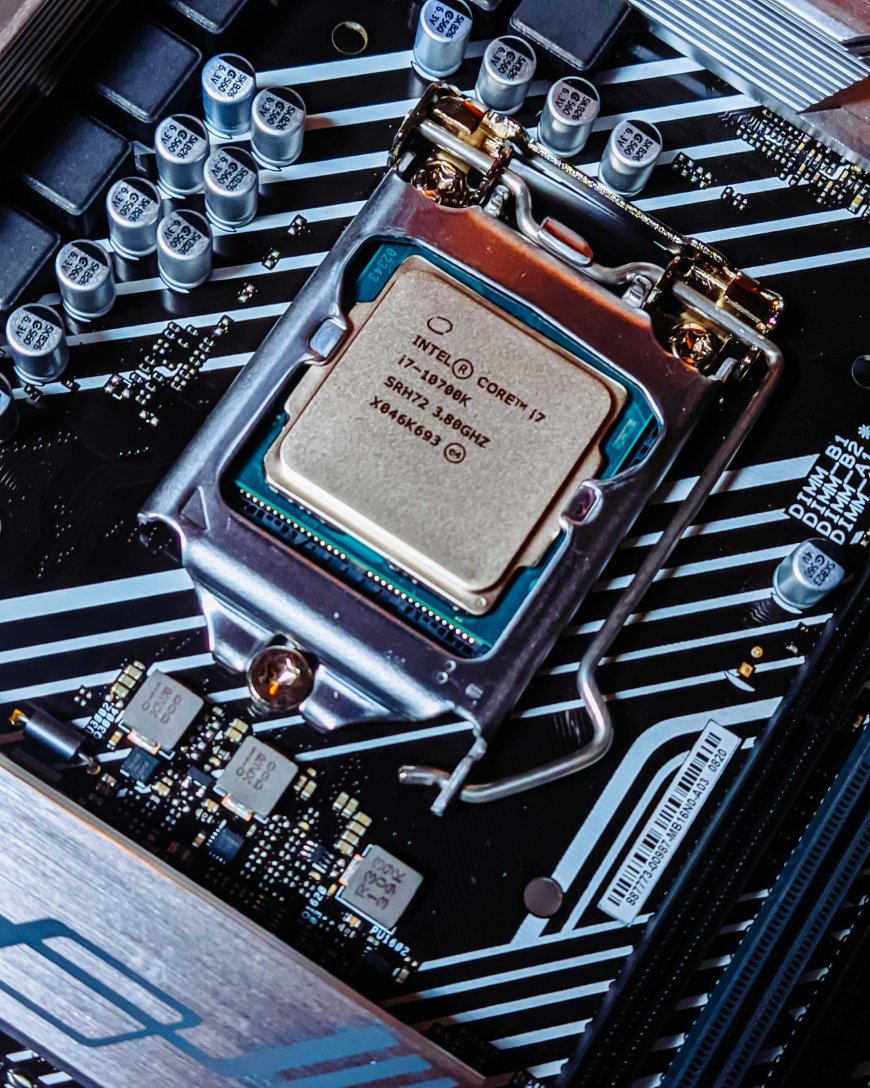Lutnick Suggests Intel Should Give Government Equity for CHIPS Act Funds
Lutnick says Intel must offer government equity in exchange for CHIPS Act funding, raising debate on tech investment and public oversight.

In the high-stakes world of semiconductor manufacturing, bold ideas are nothing new—but Bruce Lutnick’s latest suggestion is sparking fresh debate. The CEO of Cantor Fitzgerald argued that Intel should provide government equity in return for the billions in subsidies it receives under the CHIPS Act.
The CHIPS Act, designed to boost domestic semiconductor production, has already funneled tens of billions of dollars into the U.S. chip industry. But Lutnick’s proposal raises questions about accountability, corporate governance, and how public funds should be deployed to reshape the strategic technology landscape.
The Rationale Behind Lutnick’s Proposal
Lutnick contends that government investment in strategic industries should come with more than just financial aid. By taking an equity stake, the U.S. would:
- Ensure public oversight of large-scale semiconductor projects.
- Align corporate incentives with national technological goals.
- Secure long-term value for taxpayers if Intel succeeds.
“It’s about fairness and responsibility,” Lutnick noted in a recent statement. “When the government injects tens of billions into private enterprise, there should be a tangible stake in the outcome.”
Understanding the CHIPS Act
The CHIPS Act, signed into law in 2022, represents one of the largest efforts to boost U.S. semiconductor manufacturing. Key objectives include:
- Reducing dependence on foreign suppliers, particularly China.
- Encouraging research and development in advanced chip technologies.
- Creating high-tech manufacturing jobs domestically.
Intel, as one of America’s largest chipmakers, is a primary beneficiary, slated to receive significant federal subsidies to expand fabrication plants and research facilities.

Equity vs. Subsidy: The Debate
Traditionally, government incentives in the tech sector are delivered as grants, tax credits, or low-interest loans. Lutnick’s call for equity changes the equation. By taking a stake, the government would effectively become a shareholder, gaining a voice in corporate decisions and potential upside if Intel prospers.
Proponents argue:
- Equity stakes align risk and reward with public investment.
- Public oversight could mitigate misuse or misallocation of funds.
Critics counter:
- Government involvement in corporate governance could complicate decision-making.
- Equity stakes might discourage private investment if companies fear political influence.
The tension between corporate independence and public accountability is at the heart of this debate.
Intel’s Perspective and Industry Implications
Intel has not formally responded to Lutnick’s proposal, but executives have historically defended private-sector autonomy. For Intel, federal subsidies are a strategic lifeline to compete with rivals such as TSMC and Samsung, which have massive state-backed investment programs.
Potential implications for the broader semiconductor industry include:
- Other firms might face pressure to consider equity agreements when receiving CHIPS Act funds.
- The nature of public-private partnerships could shift, introducing more stringent oversight and reporting requirements.
- The approach could influence global competitiveness, as U.S. companies balance innovation with government scrutiny.
Storytelling: Inside a Fab Plant
Walking through Intel’s newest fabrication plant in Ohio, the hum of machinery and the precision of workers on the assembly line is almost hypnotic. Emily, a 32-year-old engineer, pauses beside a vat of liquid silicon:
“Every wafer we produce here represents years of research and billions of dollars. Knowing the government is invested—literally—changes the way we think about accountability. It feels like we’re building something bigger than a company; we’re building a national asset.”
Her story highlights the human and national stakes intertwined with corporate decisions—a reminder that policies like the CHIPS Act affect more than balance sheets.
Financial and Strategic Considerations
From a financial perspective, government equity could provide several advantages:
- Long-term returns for taxpayers if Intel’s valuation increases.
- Shared risk, reducing the burden on private investors in capital-intensive projects.
- Stronger alignment with U.S. industrial strategy, particularly in critical technologies.
Strategically, an equity stake could help the government steer priorities in R&D, sustainability, and domestic job creation. Critics, however, warn that it could introduce bureaucratic hurdles and reduce operational flexibility.
The International Angle
The semiconductor sector is a geopolitical chessboard. With China and South Korea dominating chip production, U.S. policy decisions have global consequences. Lutnick’s proposal, if adopted, could signal a new era of government involvement in strategic tech industries, potentially influencing:
- Trade negotiations, as other nations monitor U.S. corporate oversight.
- Foreign direct investment, as global investors reassess risk in government-linked ventures.
- Supply chain security, reinforcing domestic production while navigating international pressures.
The CHIPS Act already reflects a broader U.S. push to regain leadership in semiconductors, and equity arrangements could strengthen this strategy.
Voices from the Investment Community
Wall Street and venture investors are weighing in. Some analysts see government equity as a natural evolution of public-private collaboration, particularly in industries that are both capital-intensive and strategically critical.
- Proponents argue it ensures taxpayers see returns on massive subsidies.
- Skeptics worry it could deter innovation if corporate boards become overly politicized.
The discussion underscores a larger debate about balancing financial stewardship, innovation, and national security in high-tech sectors.
Future Outlook for Intel and the CHIPS Act
Should the government adopt equity participation, Intel may need to recalibrate corporate governance and investor expectations. Future scenarios include:
- Enhanced accountability, with government oversight influencing R&D priorities.
- Potential new investment models, combining grants, loans, and equity stakes.
- Benchmark for other tech sectors, potentially shaping policy for biotech, energy, and aerospace.
Intel’s response—or lack thereof—will likely shape both investor sentiment and legislative direction in Washington.
Conclusion: Redefining Public-Private Partnerships
Lutnick’s proposal highlights a fundamental question in contemporary economic policy: when public funds are used to support strategic industries, what level of control and ownership is appropriate?
Equity participation could offer taxpayers a tangible stake in corporate success, aligning private incentives with national interests. At the same time, it challenges traditional norms of corporate independence, inviting debate over governance, innovation, and risk.
As the CHIPS Act continues to roll out, the decisions made now will reverberate across boardrooms, factories, and Capitol Hill. For Intel, the path forward is more than financial—it is a test of corporate strategy in an era where economics and geopolitics are inseparable.
FAQs
1. What is Lutnick proposing for Intel?
He suggests the U.S. government should receive equity in Intel in exchange for CHIPS Act funding.
2. Why would the government want equity?
To secure public oversight, align incentives, and capture long-term value for taxpayers.
3. How much funding has Intel received from the CHIPS Act?
Intel is set to receive billions in federal subsidies for domestic chip production.
4. Could government equity affect Intel’s operations?
Yes, it could introduce oversight and governance requirements but may also strengthen alignment with national strategy.
5. How might this impact the semiconductor industry?
Other companies may face similar proposals, potentially reshaping public-private collaboration and global competitiveness.
আপনার প্রতিক্রিয়া কী?
 পছন্দ
0
পছন্দ
0
 অপছন্দ
0
অপছন্দ
0
 ভালোবাসা
0
ভালোবাসা
0
 মজার
0
মজার
0
 রাগান্বিত
0
রাগান্বিত
0
 দুঃখজনক
0
দুঃখজনক
0
 বাহ
0
বাহ
0




























































